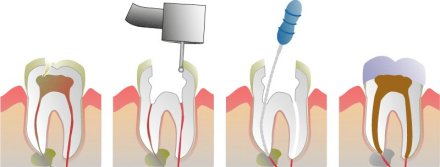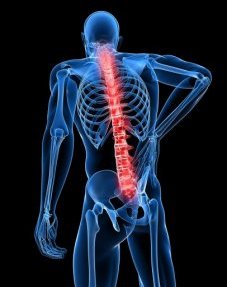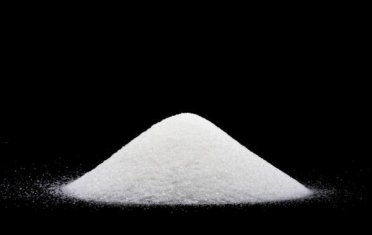 |
Wednesday, 17 July 2013
Four Huge Benefits of Exercising Outdoors
Mood:
 happy
Topic: Health happy
Topic: Health

To be sure, exercising outdoors during the winter months in many parts of the country is not easy. Snow, sleet and rain, combined with lower winter temperatures, make it difficult if not impossible to work out in a natural environment, but if you can, you should because it's much better for you in the long run if you do. "While the allure of the gym - climate-controlled, convenient and predictable - is obvious, especially in winter, emerging science suggests there are benefits to exercising outdoors that can't be replicated on a treadmill, a recumbent bicycle or a track," says The New York Times' Health Blog. Running outside is much better for your fitness levels. For one thing, you don't run the same inside, on a treadmill, as you do outside, on the ground. Your stride is different, your speed tends to be different (which is to say you tend to run more slowly on a treadmill) so your calorie burn and overall endurance levels take a hit. When you run outdoors, you flex your ankles differently - you have to, because the contour of the terrain is varied, whereas on a treadmill, if you don't increase the angle, it's the same. Also, when running outside, you can often find yourself running downhill, "a movement that isn't easily done on a treadmill and that stresses muscles differently than running on flat or uphill terrain," the Times said. And again, studies by the National Institutes of Health found that when running on a treadmill, you expend less energy to go the same distance than if you were running outside. (Tip: If you have to run indoors on a treadmill, bump up the incline to one percent; the NIH says that level more closely resembles running outside). Cycling outdoors is also more of a workout. Riding a cycling machine in a gym, even if you crank up the resistance, is just not the same as riding a real bike along a real trail that has its ups and downs, for many of the same reasons running outside is better than running on a treadmill, experts say. According to the NIH, while "the difference between road and laboratory cycling speeds was found to be minimal for small individuals...larger riders would appear to benefit from the fixed resistance in the laboratory compared with the progressively increasing drag due to increased body size that would be experienced in the field." The larger your body mass, the more wind resistance and, of course, the tougher the ride (which is a good thing if you're trying to achieve fitness and endurance). You just feel better when you're exercising outdoors. Researchers have shown that those who work out in nature not only achieve better results physically but a) tend to stick with their workout regimen longer; and b) have much better mental fitness and endurance as well. Volunteers for a number of recent exercise studies were asked to go for two walks for the same amount of time or distance; one inside on a treadmill and the other outside. "In virtually all of the studies," the Times reported, "the volunteers reported enjoying the outside activity more and, on subsequent psychological tests, scored significantly higher on measures of vitality, enthusiasm, pleasure and self-esteem and lower on tension, depression and fatigue after they walked outside." If you work out in natural surroundings, you'll stick with it longer. Several studies have shown that part of the reason why you become more fit if you exercise outside is because shunning the confines of a temperature-and-environment-controlled gym will make you stick with working out longer, and that you will want to exercise more often. "It's still a lot of speculation at this point, but if you're having trouble sticking to an exercise routine it might be worthwhile to move those activities outdoors," writes Thorin Klososki at the health blog LifeHacker.com. Learn more: naturalnews.com
Posted by Neil Bartlett DHyp M.A.E.P.H
at 00:01 MEST
Updated: Wednesday, 17 July 2013 01:22 MEST
Sunday, 30 June 2013
Discover the habits of exceedingly healthy people
Mood:
 special
Topic: Health special
Topic: Health

Ever marvel over friends, family members or colleagues who never seem to get sick? They breeze through flu epidemics, office stomach bugs and colds totally unscathed. It truly makes you wonder: Is there a secret to outstanding health in the middle of the coughing, sneezing and miserably ill masses? Absolutely. But you may be surprised as to the reasons. Seven compelling healthy habits In the general scheme of life, there really isn't a magic bullet to great health, although there are certain habits that resilient individuals tend to adopt. Some may be familiar, others a bit more unexpected. Quality rest Robust people normally do not burn the midnight oil. Good sleep each night is the foundation for keeping the immune system in top form. Going to bed before 10 p.m. and eliminating exposure to light (especially from computer screens) encourages melatonin production -- fostering sound and rejuvenating rest. A nutrient-dense diet Not surprisingly, those who avoid sickness almost always consume high quality food, rich in vitamin C and zinc. In the same way, limited sugar intake is also common. Since refined sugar suppresses the immune system, avoiding it makes sense. People who have strong health generally do not live off frappuccinos or candy bars. In return, they are rewarded with exceptional vitality. Massage, yoga and acupressure Stress is the bane of health which silently destroys the immune system. Studies have shown that people who frequently get sick are often the most stressed. Health savvy individuals realize that maintain well-being, stress needs to be managed. Massage is a good option. It lowers blood pressure and anxiety -- effectively reducing tension and stress. Likewise for yoga. Acupressure is another technique known to boost immune response. One point on the body is particularly important -- the thymus. This gland plays a crucial role in the functioning of the immune and lymphatic systems. To stimulate, gently tap the sternum with your index finger 50 times in the morning and evening. Cold baths While most of us cringe at the thought of a cold bath, especially in the heart of winter, research confirms that an icy dip significantly boosts the activity of white blood cells -- thereby destroying invading bacteria, viruses and harmful pathogens. Cold showers help to support this defensive process as well. Those who are the most resilient to illness also have a tendency to use cold water to invigorate the system. A positive attitude Never underestimate the power of a sunny outlook. A study at the University of Kentucky found that participants who have an optimistic attitude demonstrated heightened cell-mediated immunity. When optimism dropped, so did immune response. As it turns out, the most hardy people also have a tendency to look at the bright side of life. If you need an infusion of positivity, a gratitude journal is a good place to start. Further tips on how to cultivate a grateful orientation can be found here. Really, there is no need to succumb to all the nasty bugs this season. Armed with these seven habits, you too can be exceedingly robust, resilient and the envy of all those who are sniffling and sneezing away. Learn more: naturalnews.com
Posted by Neil Bartlett DHyp M.A.E.P.H
at 00:01 MEST
Updated: Sunday, 30 June 2013 01:42 MEST
Thursday, 20 June 2013
Being neurotic can be GOOD for your health after all
Mood:
 energetic
Topic: Health energetic
Topic: Health

Neurotics are often told they will worry themselves into an early grave, but they may have the last laugh after all after scientists found the character trait could be good for your health. Researchers made the surprising discovery while conducting research into how personality traits may influence underlying biology and predict harmful conditions. Neuroticism is usually marked by being moody, nervous, and a worrier, and has been linked to hostility, depression, and excessive drinking and smoking. Researchers had therefore assumed that neurotics would display the highest levels of a biomarker for inflammation and chronic disease, but they were surprised to find they displayed the lowest levels. Study leader Dr Nicholas Turiano, from the University of Rochester Medical Center, said the result suggested there are a large number of people who are both neurotic and conscientious. He said: 'These people are likely to weigh the consequences of their actions, and therefore their level of neuroticism coupled with conscientiousness probably stops them from engaging in risky behaviors.' Read more: dailymail.co.uk
Posted by Neil Bartlett DHyp M.A.E.P.H
at 00:01 MEST
Updated: Thursday, 20 June 2013 01:38 MEST
Friday, 17 May 2013
Cholesterol is NOT the enemy but the Inflammation is!
Mood:
 d'oh
Topic: Health d'oh
Topic: Health

The collective psyche of American society is long overdue for a major paradigm shift in its understanding of fats, inflammation, cholesterol, and the true cause of most chronic illnesses. Even many physicians, who should know better, still argue that cholesterol is evil and that sticking to a low-fat diet is good for health. But the fact of the matter is that avoiding fats is toxic to your health, and consuming the many food additives that commonly replace them - these include synthetic trans fats, refined sugars, and processed grains - are a primary cause of disease-causing inflammation. It all makes sense if you just stop and consider the native role cholesterol plays in protecting arteries against lesions and other damage. Rather than being the cause of plaque buildup in the circulatory system, cholesterol is actually the healing agent the body sends to sites that have been damaged by inflammation. In other words, if you have too much cholesterol buildup in your arteries, your real problem is too much inflammation rather than too much cholesterol, and a whole different mitigatory approach is required to address the problem. "It's the inflammation in the vessels that starts the lesion," says Dr. Beverly Teter, a lipid biochemist from the University of Maryland who has been researching fats and their affect on the human body for many years, as quoted by CBN.com. "The body then sends the cholesterol like a scab to cover over it to protect the blood system and the vessel wall from further damage." This runs completely contrary to the prevailing medical dogma, which still maintains that saturated fat and cholesterol are silent killers that can lead to heart disease, diabetes and other forms of chronic illness. As a result, millions of Americans have been duped into avoiding these necessary nutrients to their own demise, while they instead gorge on unhealthy vegetable oils, trans fats, sugars, grains, and phony low-fat junk foods. "When choosing which fats to eat, pick the ones that are high in omega-3 fats and also choose natural saturated fats," advises Lorie Johnson from CBN.com. "On the other hand, stay away from the fats that lead to inflammation, such as trans fats and omega-6 fats," she adds, noting that most of the oils used in processed food are unhealthy vegetable oils posing as "nutritious." Saturated fat and cholesterol necessary for proper cellular function, brain health What few people today realize is that their bodies actually require both saturated fat and cholesterol for proper metabolism, brain health, hormone balance and cellular homeostasis. Without these two important nutritional components, a cascade of health problems can ensue, including debilitating brain conditions like Alzheimer's and Parkinson's. This is especially true for people who take toxic statin drugs to artificially lower their cholesterol levels. "People with high cholesterol live the longest," says Dr. Uffe Ravnskov, M.D., Ph.D. "Consider the finding of Dr. Harlan Krumholz of the Department of Cardiovascular Medicine at Yale University, who reported in 1994 that old people with low cholesterol died twice as often from a heart attack as did old people with high cholesterol." Learn more: naturalnews.com
Posted by Neil Bartlett DHyp M.A.E.P.H
at 00:01 MEST
Updated: Friday, 17 May 2013 01:17 MEST
Monday, 13 May 2013
Fluoride and The Pineal Gland
Mood:
 d'oh
Topic: Health d'oh
Topic: Health
Recent information on the role of the pineal organ in humans suggests that any agent that affects pineal function could affect human health in a variety of ways, including effects on sexual maturation, calcium metabolism, parathyroid function, postmenopausal osteoporosis, cancer, and psychiatric disease.
Posted by Neil Bartlett DHyp M.A.E.P.H
at 00:01 MEST
Updated: Monday, 13 May 2013 01:05 MEST
Saturday, 11 May 2013
Whats Bad for the Heart is Bad for the Head
Mood:
 d'oh
Topic: Health d'oh
Topic: Health

Unhealthy habits which increase heart disease risk could also be affecting brain function in people as young as 35, a study suggests. Dutch researchers examined almost 3,800 people aged 35 to 82, testing memory, planning and reasoning. High cholesterol and heavy smoking were linked to poorer performance in the tests across all ages. The Alzheimer's Society said it showed what was bad for the heart was also "bad for the head". Writing in the journal Stroke, the researchers from the University Medical Centre in Groningen said there was already evidence that decline in brain function could be seen by the age of 45.
Risk factors To check if signs could be detected even earlier, the team assessed participants' mental abilities - cognitive function - using a comprehensive test. They also looked at risk factors for heart problems - including smoking, high cholesterol, high blood pressure, diabetes and being overweight. This enabled them to compile a "risk profile" for each participant. Those with the most serious risk for heart problems fared around 50% worse on the cognitive tests than those with the lowest-risk profile - across the age range. Read More - BBC
Posted by Neil Bartlett DHyp M.A.E.P.H
at 00:01 MEST
Updated: Saturday, 11 May 2013 01:06 MEST
Friday, 26 April 2013
The Hidden Dangers of Root Canals
Mood:
 loud
Topic: Health loud
Topic: Health

Your dentist doesn’t want you to know, and the American Dental Association (ADA) sure doesn’t want us to tell you of the many dangers of root canals. After all, it’s a multi-billion dollar industry. Any tainting of the root canal image could cost them serious cash, so (like Big Pharma) they deny there’s any problems at all. Unfortunately for them, more and more people are being awakened to the trouble with traditional medicine and dentistry, so their industry will be taking a hit. The Alliance for Natural Health says there are more than 25 million root canals performed in the United States each year, with 41,000 being performed every single day. And the number of dentists who discuss the true dangers of these procedures before they do them can probably be counted on one hand.
So, what is wrong with a root canal? A root canal essentially removes the live pulp from a tooth and replaces it with a synthetic material. This stops the tooth from appearing to rot away, it does away with the internal damage that could be causing a toothache, the damage from an untreated cavity. But, while your dentist would have you think the root canal solves your problems—it really isn’t that simple. In addition to the central root of the tooth, where the dentist removes the tissue during a root canal, there are thousands of tiny side canals that aren’t touched by your doctor. When the root is removed, the nerves in these side canals die. They rot. They fester and become a breeding ground for bacteria and infection. Read more: naturalsociety.com
Posted by Neil Bartlett DHyp M.A.E.P.H
at 00:01 MEST
Updated: Friday, 26 April 2013 01:42 MEST
Tuesday, 19 March 2013
Salt linked to immune rebellion in study
Mood:
 d'oh
Topic: Health d'oh
Topic: Health

The amount of salt in our diet could be involved in driving our own immune systems to rebel against us, leading to diseases such as multiple sclerosis, early laboratory findings suggest. Several teams of scientists have simultaneously published data in the journal Nature suggesting a link. Salt may activate a part of the immune system that can target the body. Experts said the findings were very interesting and plausible, but were not a cure for people with MS. The body's defence against infection can go horrible awry, turning on the body and leading to autoimmune diseases including Type 1 diabetes, rheumatoid arthritis and multiple sclerosis. Genetics is thought to increase the risk of such diseases, but the world around us also has a major impact. One of the leading theories behind multiple sclerosis is a viral infection, but smoking and a lack of vitamin D may make the condition more likely. Now researchers believe they have the first evidence that the amount of salt in our diet may also be contributing. Full Story from BBC
Posted by Neil Bartlett DHyp M.A.E.P.H
at 01:01 MEST
Updated: Tuesday, 19 March 2013 10:11 MEST
Tuesday, 5 March 2013
Address the major stressors that lead to chronic pain
Mood:
 bright
Topic: Health bright
Topic: Health

Chronic pain is a modern day epidemic that affects more than 70 million Americans. It has been estimated to cost the economy more than $100 billion per year. Individuals with chronic pain can have very fulfilling lives if they have a plan to address the major stressors that lead to chronic pain. Most people are looking for a quick drug or supplement to take to reduce pain. Although such drugs and supplements exist they fail to go upstream to the underlying causes behind chronic pain syndromes. Identifying the causative factors and minimizing their existence in someone's life is the greatest breakthrough. Three major health interferences There are three major interferences with our bodies' nervous system function and natural rhythms of life. The first major stress is mental/emotional and must be effectively addressed. Living in a state of fear is extremely destructive to human physiology. Fear drives stress hormones which utilize all the key resources in the body and leave the system drained after a period of time. To minimize mental/emotional stress, take time to breath deep and focus on your relationship and identity in your spiritual life. It is also great to reconnect with the Earth's rhythms by grounding yourself through walking barefoot, sitting or lying on grass, dirt or sand for as long as possible. Sunbathing is great for vitamin D3 synthesis and reconnecting with the Earth's rhythms and calming stress hormones. The winter time is a more stressful period of time for many individuals and they often are unable to sunbathe and ground their bodies due to colder climates. Taking a beach vacation or supplementing with 10,000 IU of vitamin D3 and using home grounding equipment is helpful. They should be aware that the more they are inside their home and out of touch with the Earth's rhythms, the more vulnerable they will be to stressors. Chemical stress incinerates the body Chemical stress comes in the form of bad nutrition and environmental toxicity. A diet high in sugar, trans-fats and industrialized meat is highly inflammatory. These food sources create massive cellular toxicity and damage the gut lining creating states of leaky gut syndrome that fire off major inflammatory reactions throughout the body. Follow an anti-inflammatory diet that is free of food allergens and is loaded with fermented foods to reestablish a healthy gut. The ideal diet should focus on good fats as the primary calorie source in the form of coconut, avocados, olive oil and sprouted nuts and seeds. Clean animal protein in the form of grass-fed beef and bison, wild fish and organic poultry should be consumed regularly. The nutrition plan should feature phytonutrient rich vegetables and herbs and low-glycemic fruit like lemons and berries. Uncorrected physical stress is destructive Physical stress has to do with poor spinal function and abnormal movement patterns. When an individual experiences some form of trauma such as a car accident, fall or contact sports, the spine and nervous system become damaged. Poor posture patterns will also cause muscle imbalances and spinal subluxation patterns. A sedentary lifestyle is extremely damaging to the physical body as are poor biomechanics in lifting, bending and walking. The more these bad biomechanical patterns are used, the more uneven wear and tear the body experiences. To effectively reduce physical stress, it is essential to see a wellness based chiropractor to remove subluxations and restore good biomechanical and neurological patterns to the body. Rehabilitative exercises for the spine and extremities should be applied to restore balance and normal tone. A regular exercise program of resistance training that incorporates holistic movement patterns is vital to optimal physical health. About the author: Dr. David Jockers owns and operates Exodus Health Center in Kennesaw, Ga. He is a Maximized Living doctor. His expertise is in weight loss, customized nutrition & exercise, & structural corrective chiropractic care. Learn more: naturalnews.com
Posted by Neil Bartlett DHyp M.A.E.P.H
at 01:01 CET
Updated: Tuesday, 5 March 2013 01:23 CET
Sunday, 10 February 2013
Experts Agree – Sugar is a Health Destroyer
Mood:
 happy
Topic: Health happy
Topic: Health

In the U.S., there is a love affair with sugar. Even for those of us who don’t consume soft drinks and don’t keep cookies and snack cakes around, sugary goodies are seen as special treats. We reward ourselves with sugar, we celebrate with sugar, we put candles on sugar and sing around it for goodness sake. But all of this sweetness is having detrimental effects on our collective health—effects that are just coming to light for the vast majority of people. The risks of sugar have been suspected or even known in the natural health community for many years. But now mainstream folks are starting to get it too. Not only is sugar being connected to things like obesity and diabetes, but it is even cancer and kidney damage. Here are some facts about sugar consumption: ~ Some stats say that the average American consumes 70 grams of fructose per day (that’s 300% more than the recommended amount). ~ 50 percent of Americans consumed approximately 227 grams (1/2 pound) of sugar each day around 2009—equating to a 180 pounds each year. ~ The average person consumed approximately 22.4 grams each day (18 pounds of sugar each year) around 1800.
Kids consume 7 trillion calories of sugar from sugary drinks each year. ~ The average American consumes 35 pounds of high fructose corn syrup each year. ~ No more than 25 grams of sugar per day is recommended. Read more: naturalsociety.com
Posted by Neil Bartlett DHyp M.A.E.P.H
at 01:01 CET
Updated: Sunday, 10 February 2013 01:05 CET
Newer | Latest | Older
|
|










